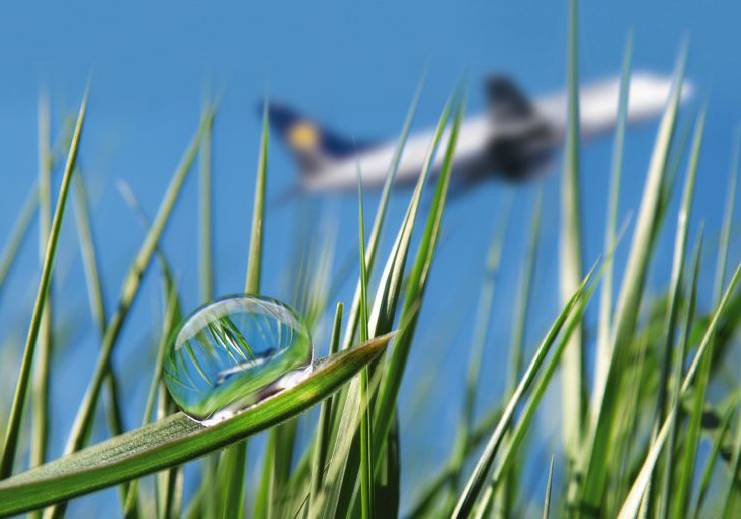AIR TRANSPORT RAeS Climate Change Conference
Airline chiefs spell out their message to Greta
The first panel discussion, which was chaired by Michael Gill, Executive Director of the Air Transport Action Group, looked at airline strategies towards the achievement of net-zero emissions. Gill explained how the whole airline industry is already committed to reduce CO2 emissions to 50% of 2005 levels (a target of 325m tonnes) and that this would be a tough target to meet.
 However, the airlines are not short of ambition. As the new CEO of British Airways, Sean Doyle, reminded delegates: “We, BA, are part of the first airline group to commit to net-zero emissions by 2050 in October 2019”. BA is focusing on newer more fuel-efficient aircraft but Doyle also stressed the need for a portfolio of solutions. Since over 70% of aircraft carbon emissions come from medium and long-haul flights, one short-term priority was the development of SAF to replace fossil fuel-derived Jet A1.
However, the airlines are not short of ambition. As the new CEO of British Airways, Sean Doyle, reminded delegates: “We, BA, are part of the first airline group to commit to net-zero emissions by 2050 in October 2019”. BA is focusing on newer more fuel-efficient aircraft but Doyle also stressed the need for a portfolio of solutions. Since over 70% of aircraft carbon emissions come from medium and long-haul flights, one short-term priority was the development of SAF to replace fossil fuel-derived Jet A1.
Johan Lundgren, CEO of easyJet said that the feedback from passengers emphasised the need to tackle the environmental issue. “We need a whole range of technologies to solve the problem,” he said. “easyJet is committed to carbon offsets and, as a short-haul airline, we’re excited about the prospects offered by hydrogen and electric aircraft.”
Rob Gurney, CEO of Oneworld Alliance, agreed that the issue of tackling climate change remained a priority. “We are happy to be the first airline alliance to commit to net-zero emissions by 2050 in September this year,” he said. “The Covid crisis has reinforced that commitment.”
Each speaker was asked what message they had for environmental activist Greta Thunberg and the flygskam (flight shaming) movement. “We’re taking this very seriously,” responded Doyle. “Aviation has been the first sector to create a global framework and to commit to achieving the regulatory targets by 2050. Our commitment to the environment is genuine and sincere.” He added: “We want to continue providing the benefits of aviation but in a way that is sustainable.”
Johan Lundgren also stressed the social and economic benefits offered by air travel. The industry can adapt and change and also help combat inequality by maintaining people’s ability to travel. “It’s up to our industry, with the regulators and other stakeholders, to ensure that we have less impact on the environment.”
“I am very glad that Greta has stood up to raise awareness of climate change,” said Rob Gurney. “However, we shouldn’t just focus on the awareness but also on encouraging those areas where the airline industry has made commitments and where work is being done to improve sustainability.”